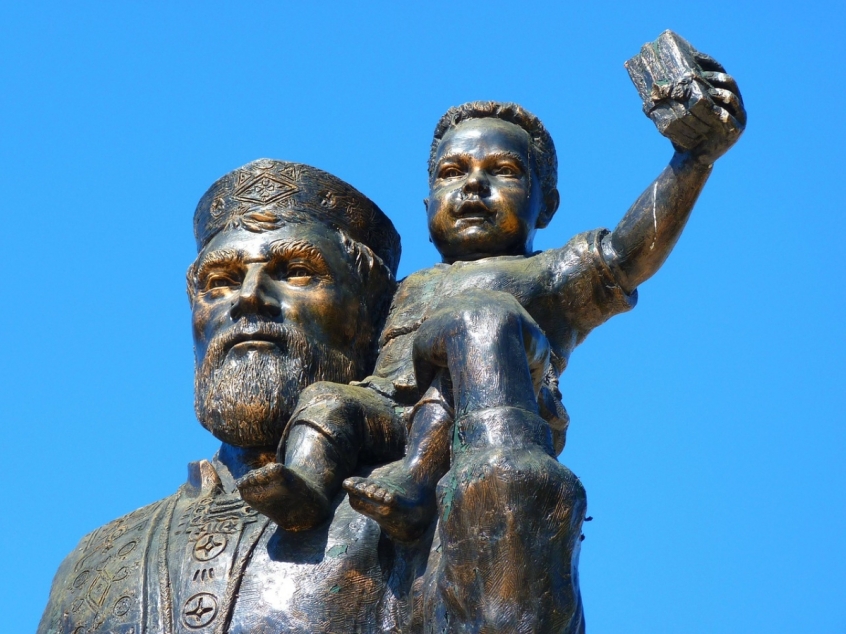Today's church is not all sweetness and light, to put it mildly. In the US, liberals and conservatives don't have a good word to say for each other. In Ukraine, Orthodox Christians have fallen out in a turf war. The Church of England and the wider Anglican Communion are heading for meltdown over gay marriage. But it's rare that disagreement descends to actual fisticuffs nowadays (though it reportedly has in Ukraine already).

In the olden days, it was much more common. Today, October 26, marks the victory in AD 366 of Pope Damasus over the forces of his rival Ursinus, who had attempted to usurp his position. During three days of fighting in which Ursinus' followers took refuge in a church, Damasus' fighters tore open the roof and threw tiles at those inside. Eventually they broke in and captured it, leaving 137 of their enemy dead. Damasus still faced opposition, and was forced to hire gladiators to protect himself.
The argument went back to the Arian heresy (it's complicated), which also troubled St Nicholas, Bishop of Myra, the model for Father Christmas. At the Council of Nicea, 300 bishops came together to debate the nature of the Trinity. Arius, from Egypt, taught that Christ was not equal to his Father and was a created being. Outraged, Nicholas strode across the room and slapped him in the face.
These examples pale beside the behaviour of Pope Urban VI, chosen in 1378 and precipitating the notorious Papal Schism, when there were rival popes in Rome and Avignon (the man elected as Anti-Pope Clement VII was Robert of Geneva, known as the 'Butcher of Cesena' because of a horrendous massacre there he had overseen). Urban, widely believed to be insane, would berate his cardinals, calling them half-wits, and had to be held back from striking the Cardinal of Limoges. Accusing them of plotting against him, he had six cardinals arrested and tortured; he walked up and down outside the window, reading his breviary while listening to their screams.
In 1385 he was driven out of Naples, where he had settled, and ravaged Italy with an army of mercenaries, dragging the cardinals with him. When the horse of one of them went lame, he had him put to death and his corpse left by the roadside. He then executed four more of them. Only one, an Englishman, survived, thanks to the intercession of Richard II.
The dreadful deeds of Urban and Clement inspired the great English Reformer John Wycliffe and the rise of Protestantism.













